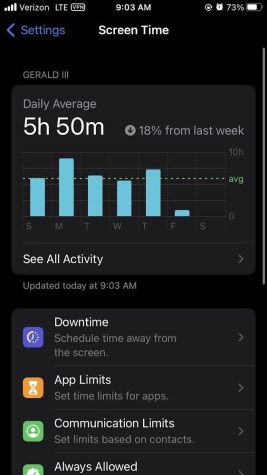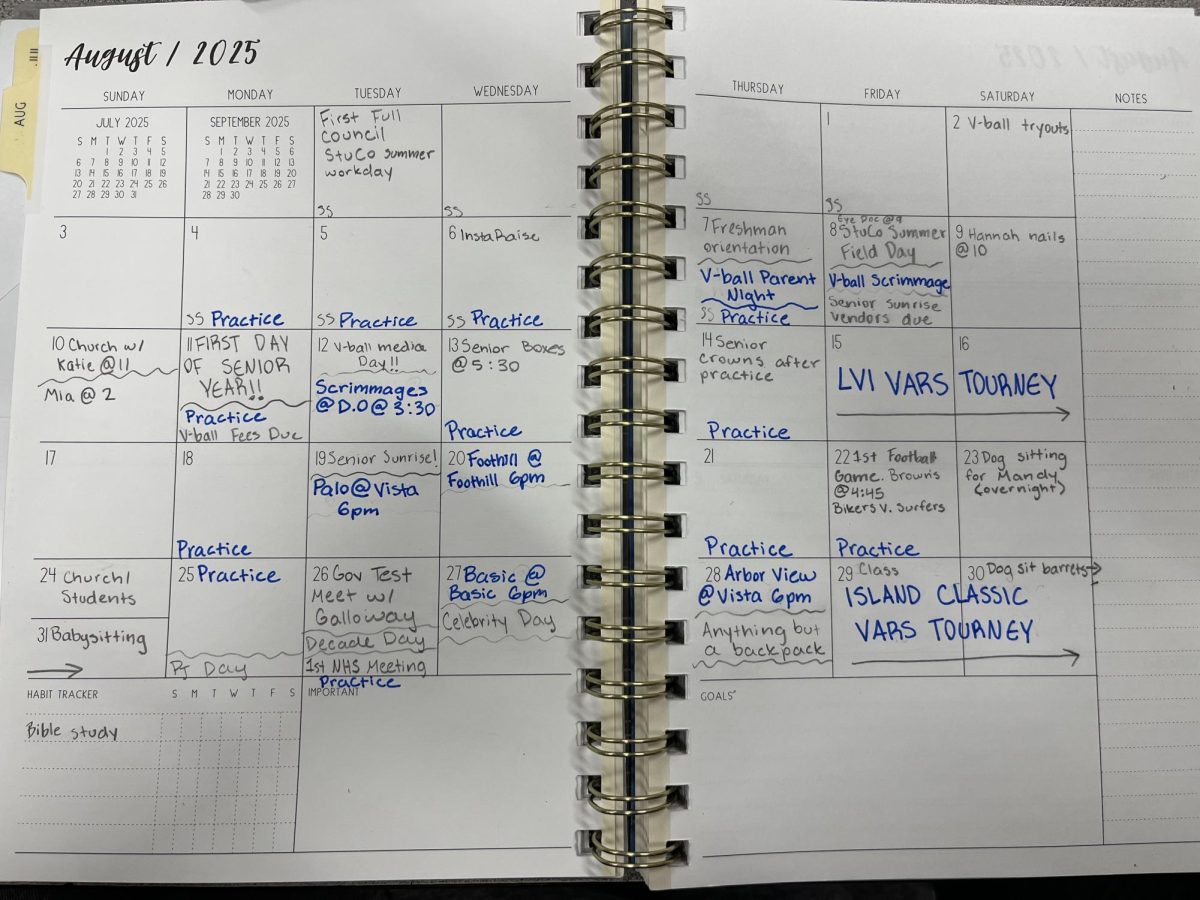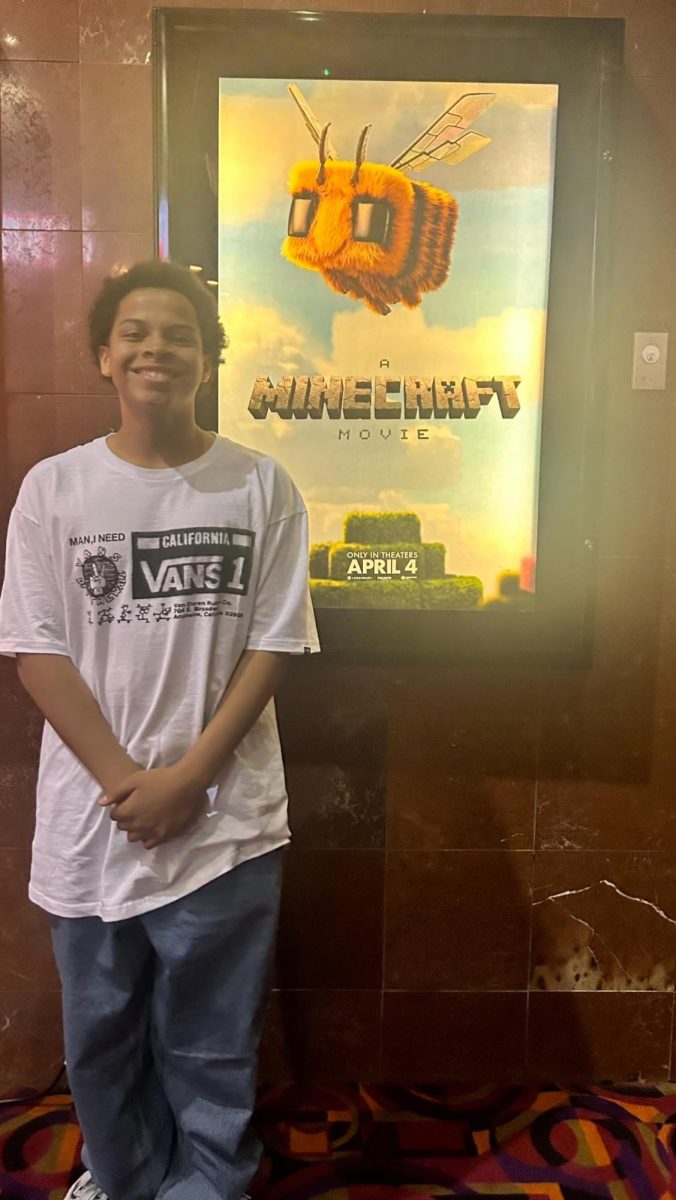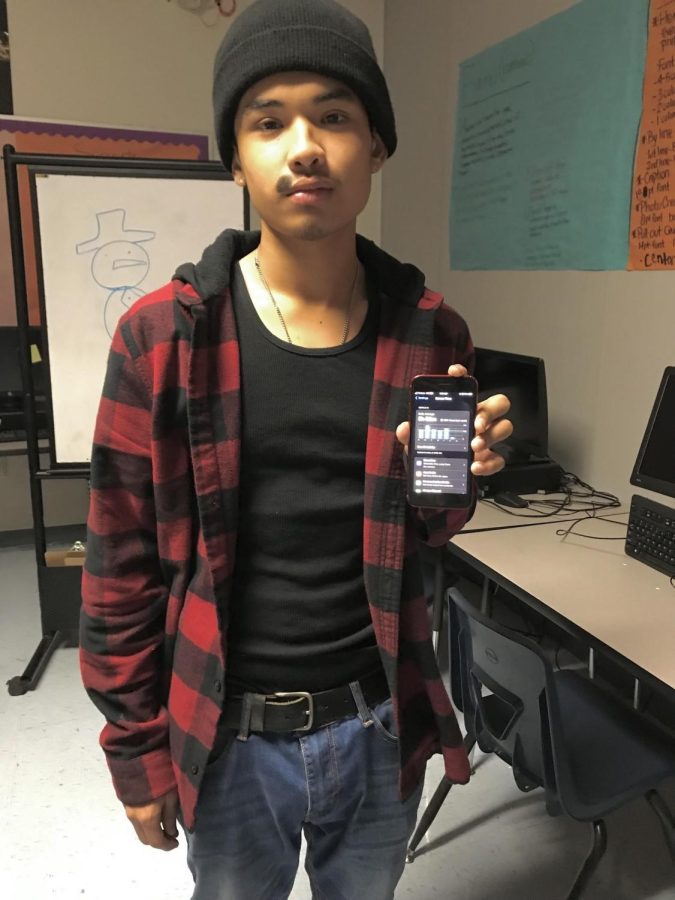Too Much Screen Time
March 2, 2022
Since the invention of the first tools over 3.3 million years ago, technology continues to amaze and amuse mankind and today’s teens’ tools, although more complex, pose more potential for distraction instead of development. Today’s teens seem as if their phones have evolved into a third appendage, and parents are becoming increasingly worried to see how much teens are addicted to technology (Miller).
As COVID-19 cases rose to over 412M, students’ addiction to technology also spiked. Due to COVID-19 shut downs and quarantines, teenagers escaped the grim reality of the pandemic and immersed themselves into a virtual reality.
According to WGU Nevada, using technology actually helps young children learn how to multitask more effectively. 2.2 million teens use Google Assistant or Amazon Alexa (Kats). It is a technology that people can ask something and it will answer right away. Technology easily fulfills basic needs causing more teens to be addicted. Technology keeps teens entertained, making them use it nonstop. Technology addicts can see what is happening in the world in real time and that satisfies them.
Based on research, technology addiction affects teens both physically and emotionally. Vision problems and weight gain or loss continue to be the major physical problems for those who are addicted. Technology addiction causes teens anxiety and depression because teens do not sleep well and that affects their mental health. Teens are attached to their gadgets to the point where
they do not know that is already affecting them physically and emotionally (The Learning Network).
Technology can be helpful and makes simple tasks easier. Most of the people in the world do most of their work using technology. Even the students use technology for school. Using technology in school seems to be successful. Students have fun opportunities to practice what they learn. (“How Important Is Technology in Education? Benefits, Challenges, and Impact on Students”). Modern era allows us to use technology for everything.
The brain processes technology addiction and drug or alcohol addiction the same way. (“Technology Addiction and the Brain: Understanding the Impact”). There is no formal way to diagnose technology addiction. However, concerned parents can monitor how much time their teens spend on their phone. By using the iPhone settings, parents can view and monitor time their student spends on the phone. One of the best ways to stop technology addiction is to lessen the screen time by doing something offline. Less screen time = more memories with friends and family. 































